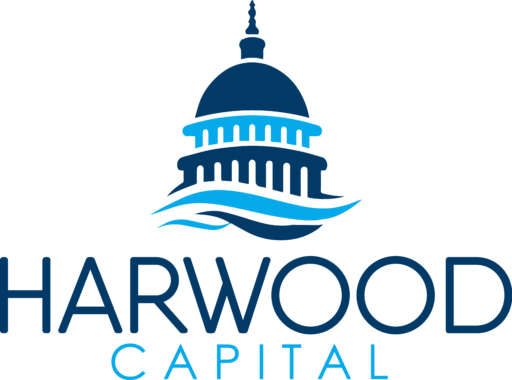Warren Buffett once said, “Price is what you pay, value is what you get,” capturing the essence of business valuation. In the realm of selling businesses, one of the most significant hurdles in the middle to lower middle market is managing the expectations surrounding business valuations. Sellers often perceive their businesses to be worth far more than what the market is willing to bear. This article explores the reasons behind this common phenomenon and offers insights into realistic valuation considerations.
Valuing Cash Flows, Not Assets
One key reason for inflated valuation expectations is the tendency of owners to overemphasize the value of assets rather than cash flows. Investors prioritize the cash a company generates on a monthly and quarterly basis. The true value of a business, especially in contemporary times, lies not in its tangible assets but rather in the cash-on-cash return those assets can produce for investors. Consequently, buyers are primarily interested in the cash flow potential of a business, not the historical value of its physical assets.
The “Instagram, Whatsapp, OculusVR” Skew
Another factor contributing to unrealistic valuations is what we call the “Instagram, Whatsapp, OculusVR skew.” Some sellers mistakenly believe that their businesses should be valued at astronomical multiples simply because companies like Facebook paid exorbitant prices for acquisitions like Instagram, Whatsapp, and OculusVR. However, these outlier cases do not reflect the reality for most businesses. Unless a company possesses valuable intellectual property and the ability to scale in a network-based format, it should not expect to command such extraordinary valuations. Traditional businesses must be valued within a more reasonable framework.
Bottom-Line Growth Does Not Automatically Increase Valuation Multiples
A common misconception is that if a business’s bottom-line increases, its valuation multiple will automatically rise as well. While it is true that increasing cash flow can enhance a business’s overall worth, it does not mean that the valuation multiple will experience a linear growth. Multiples are influenced by a multitude of factors, and the increase in bottom-line performance does not necessarily translate to a proportional increase in valuation multiples.
Valuation Based on Wants and Needs, Not Fair Market Value
Owners often fall into the trap of reverse-engineering valuations based on their personal wants and needs, rather than considering fair market value. It is important to recognize that selling a business may not always be the right move, particularly for owners who are relatively young, generating positive cash flow, and seeking retirement. If the desired multiple is unrealistic, it may be more prudent to continue operating the business for a few more years before reassessing the sale option.
Managing Unrealistic Expectations
While various factors contribute to unrealistic valuation expectations, there are strategies to help mitigate them and guide sellers towards more realistic outcomes. Here are a few approaches we have found helpful:
- Understanding Market Fundamentals: Educating entrepreneurs about cash flow dynamics, industry-specific multiples, and general market valuations can provide them with a clearer understanding of their company’s worth. This knowledge empowers owners to make more informed decisions.
- Painting a Realistic Market Picture: By presenting recent deals that closely align with the size and industry of the business in question, advisors can illustrate what the market is likely to bear in both best and worst-case scenarios. This visual representation helps sellers grasp the range of possible valuations.
- Managing Expectations: As M&A advisors, our role extends beyond facilitating transactions. We also assist clients in managing their expectations. Some business owners may have attended conferences or seminars that inflated their perception of their business’s value. Our responsibility is to provide a realistic assessment, even if it means delivering unfavorable news.
Lessons from the 2007-2008 Market Crash
The 2007-2008 market crash serves as a poignant reminder of the perils associated with inflated valuation expectations. During that period, many business owners believed they could maximize their profits by waiting a few more years to sell. Unfortunately, hindsight revealed the flaw in their strategy. Some businesses suffered severe consequences, while others emerged with lasting scars. The unpredictability of the market makes it impossible to foresee future trends accurately. However, several valuable lessons have emerged:
- Understanding Market Dynamics: Business owners must grasp the fundamentals of the market. This includes recognizing that market conditions can fluctuate dramatically and cannot always be timed perfectly.
- True Advisor Role: Investment banking consultants play a crucial role in helping owners comprehend the true value of their businesses. While a strategic buyout with above-average multiples is always desirable, it is important to align expectations with market realities.
The Role of Earnouts
In discussions about deal structures, owners sometimes express aversion to earnouts. While they can introduce an element of risk and uncertainty, earnouts can also serve as effective tools. In cases where owners have unrealistic valuation expectations, an earnout may help manage those expectations and provide incentives for post-acquisition business growth. Earnouts can account for up to 30% of the total deal value and are particularly applicable when the seller anticipates a future increase in the bottom-line.
Managing Expectations for a Faster Sale
When owners decide to sell their businesses, having realistic expectations significantly expedites the process. Management teams with a keen and realistic understanding of their company’s value tend to attract buyers more swiftly. Interestingly, as deals increase in size, unrealistic valuation expectations become less prevalent. This topic warrants further exploration.
Unrealistic business valuation expectations pose significant challenges in the middle to lower middle market. By focusing on cash flows rather than assets, avoiding skewed perceptions caused by outlier acquisitions, and acknowledging the limitations of bottom-line growth, owners can adopt a more realistic approach to valuing their businesses. Investment banking consultants have a vital role in guiding entrepreneurs, helping them understand market fundamentals, and managing their expectations. By aligning valuation expectations with market realities, owners can increase their chances of achieving successful transactions and securing their financial futures.
